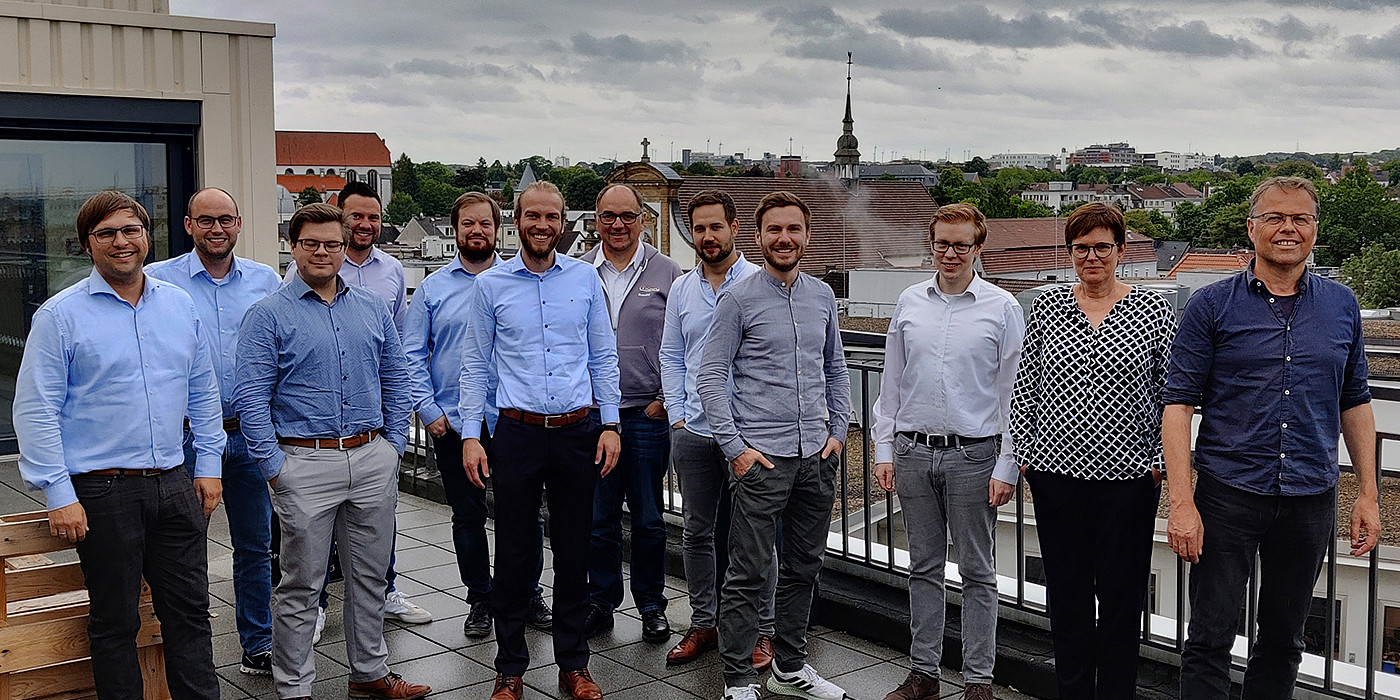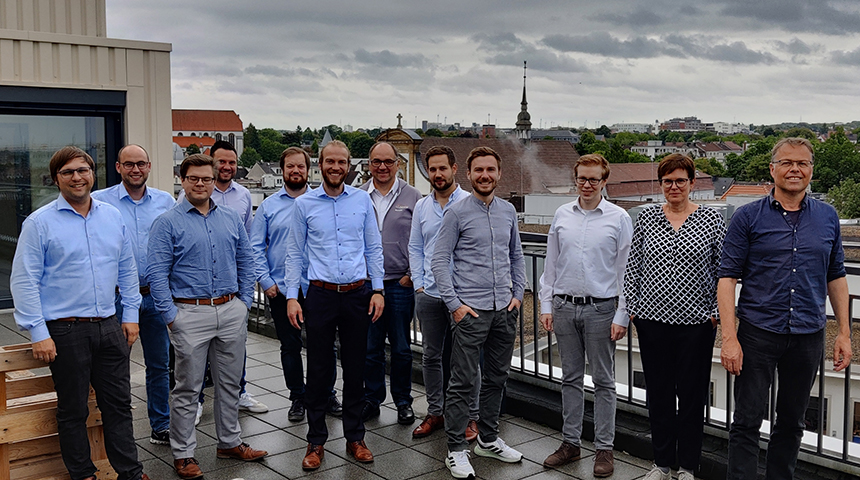Containing climate change and at the same time enhancing economic performance – for many companies, this is one of the greatest challenges they are currently facing. In the mobility sector in particular, lightweight design is one of the key technologies being implemented to achieve this aim. Thanks to the special construction methods used to keep the product's weight as low as possible, it is possible not only to save material costs, but also to reduce CO2 emissions when the vehicles are being operated. Emission-intensive manufacturing and recycling processes are, however, frequently left completely out of the equation. Even if relatively little CO2 is emitted during vehicle development itself, the subsequent CO2 emissions in production and use are materially defined. Motivated by these facts, the EDAG Group - the world's largest independent engineering service provider in the mobility industry - is participating in the joint project "Bionics and AI for sustainable integration in product development for resource-efficient lightweight construction" (BIKINI) with partners from research and practice. The goal the participants are pursuing together is to apply bionics and artificial intelligence methods in order to make sustainability possible along the entire process chain and throughout the entire life cycle of a product. Apart from EDAG and the University of Paderborn, other members of the consortium are the companies Additive Marking GmbH, Atos Deutschland, Krause DiMaTec GmbH and RHaug GmbH, and the Alfred Wegener Institute. The project, which is due to run for three years, kicked off in September. The BIKINI project is being funded by the Federal Ministry for Economic Affairs and Energy (BMWi), and has a project volume of some four million euros.
Artificial intelligence and bionics for more efficient development processes
"Evaluation criteria such as cost, weight and performance are already being taken into account in the development of lightweight components. What we want to do is add a key figure for sustainability to this catalogue, and then continuously measure and optimise this throughout the development process," explains project leader Sebastian Flügel from EDAG Engineering GmbH. In order to be able to take these aspects into account when individual components or complex systems are still at the planning and design stage, new development concepts need to be worked out. Additional elements are therefore added to established processes such as the computer-aided creation of designs (CAD design) and their simulation (FE calculation).
Bionics – a science in which principles and phenomena from living nature become the model for technical developments. Artificial intelligence (AI) – a field of computer science which, using algorithms, transfers human learning and thought processes to technical applications. Both elements serve as the basis for new types of automatic functions and assistance services in the development process.
"The future of mobility and its development lie in the diversity of the technologies implemented. This is what makes the combination of bionics and AI so exciting. One neuron alone is incapable of producing any effect, but a group of neurons is capable of changing a great deal," explains Jacek Burger, head of the AI department.
Since 2018, the EDAG Group has been able to draw on extensive AI experience in the software and digitalisation segment. For instance, software that uses artificial intelligence has been developed to support assisted and automated driving, even when visibility is poor. EDAG is now making more and more use of these skills in its own vehicle development processes. In the BIKINI project, for instance, artificial intelligence is being trained to assess vehicle designs and their pedestrian protection in a matter of seconds. This will do away with the need for expensive calculations, and the engineers will be able to work out lightweight and at the same time safer designs more quickly. In addition, AI methods are used to analyse product specifications, to improve requirements and sustainability management.
Since as early as 2015, the EDAG Group has been working intensively on practical fields of application for bionics. In 2015, for instance, the "EDAG Light Cocoon" concept car with a body structure inspired by the skeleton structure of a leaf was presented for the first time ever, and this design provided weight-saving potential of up to 30 per cent. Using new algorithms and aids in design and calculation, such principles are also to be transferred to established manufacturing processes and therefore to series production.
Innovative consortium with different skills
"Due to the various different skills we have in AI and bionics, this intensive cooperation between industry and science will bring about completely new solutions. These are necessary to ensure that, far from being detrimental to economic competitiveness, social and environmental sustainability actually reinforce it," according to Sebastian Flügel, project leader at EDAG Engineering GmbH.
"Artificial intelligence will help our engineers with their work, and enable them to achieve sustainable results more quickly. We are looking forward to applying the new methods researched in the BIKINI project for our customers," sums up Friedemann Voit, Head of the CAE & Vehicle Safety department in Munich.

